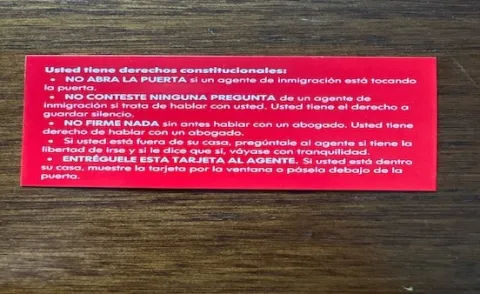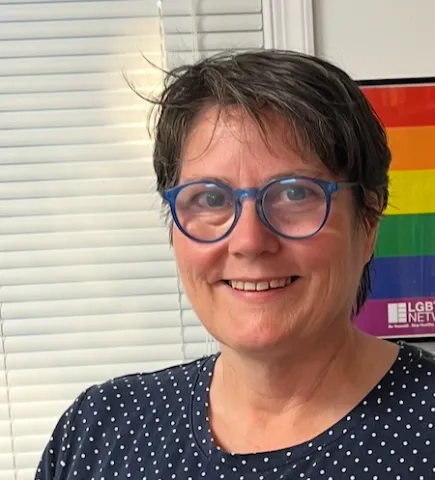“A family rushes into a grocery store, each child is to get an item on the shopping list and told to meet at the register in exactly one minute. Their goal is to grab food as quickly as possible—before they risk getting caught in an ICE raid,” says Ivis Castillo.
This is the reality due to President Trump’s immigration policies and U.S. Immigration and Customs Enforcement (ICE) activities in many communities across the United States. Castillo explains that in her role as a bus driver, she has seen a Spanish-speaking student who, after being absent, returned to school withdrawn. When she asked him what was wrong, he said he was scared he wouldn’t see his parents again because of ICE enforcement.
This type of pressure, anxiety, and fear amongst students has caused Castillo to create her own protocol that aligns with her district’s policy. If ICE or immigration officials try to enter her school bus, Castillo says: “No one is going to enter, and if they want to talk to me, they're going to have to talk to me by my…driver's window. I'm not going to release any students.” Castillo adds: “I'm going to communicate with my office to reach their parents, and the only way that I'm going to release the students is to their parents at the school site.”
Strengthening Trust, One Family at a Time
As a bilingual family specialist who communicates with families in the Arlington Public School District, Erika Ryan says that the threat of ICE has strengthened her communication with students' families. Ryan says that families “know we have the same goal. The goal is to keep kids safe at school and give them pertinent information about what actions the school system is taking to all the immigrant families.”

Ryan gives families information and support privately because she has seen immigrant families' fears about engaging with the school due to their immigration status. She says that immigration information is given after school because families “are hesitant to attend public events that are being held in school facilities that are about immigration because they are afraid that ICE will show up.”
Ryan is also collaborating with counselors and social workers in the school district to help high school students navigate anxiety caused by ICE. Ryan says that high school students are afraid because “the guardian doesn't have a job anymore or cannot go to work because they have a deportation order, so they are afraid they're going to run out of food or that they won’t have money to pay rent.” So, Ryan is helping immigrant families register for food pantries, food banks, and employment resources.
When Policy Becomes Protection
In order to protect immigrant students, June Prakash, a paraeducator and Arlington Education Association president, says that her school district adopted NEA’s Safe Zone Resolution, This resulted in a clear policy on how schools should respond.
The agreement says: “If ICE does show up at a school, then the responsibility isn't on a principal or an educator to look at a warrant,” says Prakash, who is also an Arlington Public School board candidate. “We are under no obligation to let somebody into the school. If somebody identifies themselves as an ICE agent and says they have a warrant, then the administrator at that school is supposed to call the legal counsel of our school system.”

In addition to school policy, Prakash says that wallet-sized Red Cards are made available to families. The Red Cards are in English and Spanish and describe the constitutional rights of citizens and noncitizens and can be given to ICE agents. It states the following:
- I do not wish to speak with you, answer your questions, or sign or hand you any documents based on my Fifth Amendment rights under the United States Constitution.
- I do not give you permission to enter my home, based on my 4th Amendment rights under the United States Constitution, unless you have a warrant to enter, signed by a judge or magistrate, with my name on it, that you slide under the door.
- I do not give you permission to search any of my belongings, based on my 4th Amendment rights.
- I chose to exercise my constitutional rights.
These cards are given out so that community members and students can hand them over to agents in order to assert their constitutional rights.
What More Can be Done?

Danielle Jones, an instructional assistant and vice president of the Arlington Education Association, says that when school districts hold trainings on protecting immigrant students, all staff, including education support professionals, play a key role in student safety.
Jones underscores that important information and resources about this topic should be sent in the student’s home language. Additionally, trauma-informed lessons should be provided “so that they have tools in their toolbox to actually deal with the trauma,” she says.
Unions also play a key role, according to Jones.
“We can make sure we're talking to people who are in the community and partner with groups that deal with immigration so that we have all the knowledge,” she says. “Then [we must] make sure that the information is disseminated to our members.”
Educators Protected by Law:






